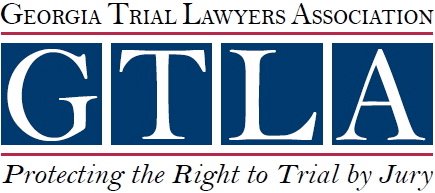Motorcycle accidents are a serious concern on Georgia’s roads, often leading to severe injuries or fatalities. Determining liability in such accidents is a complex process, governed by various legal principles and factual considerations. Understanding the nuances of Georgia’s laws and the key factors that influence liability is crucial for victims seeking justice and compensation. This discussion explores these factors, providing a comprehensive overview of the legal landscape surrounding motorcycle accidents in Georgia.




The Role of Negligence in Motorcycle Accident Liability
Negligence is the cornerstone of liability in motorcycle accident cases in Georgia. To establish liability, it must be proven that a party’s negligence directly caused the accident and resulting injuries. Negligence, in legal terms, refers to the failure to exercise reasonable care that a prudent person would have exercised under similar circumstances. For example, a driver who fails to yield the right of way to a motorcyclist or who is distracted by texting while driving could be considered negligent.
In Georgia, the courts apply a comparative negligence rule. This means that even if a motorcyclist is partially at fault for the accident, they may still recover damages, though their compensation will be reduced by their percentage of fault. For instance, if a motorcyclist is found to be 20% at fault for an accident, their damages will be reduced by 20%. However, if the motorcyclist is found to be 50% or more at fault, they may be barred from recovering any compensation at all.
Establishing negligence involves proving four essential elements: duty, breach, causation, and damages. The plaintiff must demonstrate that the defendant owed them a duty of care, that the defendant breached this duty, that the breach caused the accident, and that the accident resulted in actual damages. Each of these elements must be proven by a preponderance of the evidence, meaning that it is more likely than not that the defendant’s negligence caused the accident.
Understanding Georgia’s Traffic Laws and Their Impact on Liability
Georgia’s traffic laws play a significant role in determining liability in motorcycle accidents. These laws govern the behavior of all motorists, including motorcyclists, and violations of these laws can be used as evidence of negligence. For example, speeding, running a red light, or driving under the influence of alcohol or drugs are all traffic violations that can establish negligence.
Motorcyclists in Georgia are subject to specific laws designed to ensure their safety on the road. These include helmet requirements, lane-splitting prohibitions, and rules governing the operation of motorcycles in traffic. Failure to comply with these laws can not only put motorcyclists at risk of injury but can also impact their ability to recover damages in the event of an accident. If a motorcyclist is found to have violated a traffic law, this may be used as evidence of contributory negligence, potentially reducing their compensation.
Moreover, in some cases, the negligence of other parties, such as vehicle manufacturers or government entities responsible for road maintenance, may also be a factor in determining liability. For example, if a defective motorcycle part contributed to the accident or if poor road conditions were a factor, these parties may also be held liable.
The Importance of Evidence in Establishing Liability
In any motorcycle accident case, evidence is crucial in establishing liability. This evidence can take many forms, including eyewitness testimony, police reports, photographs of the accident scene, and medical records. The more evidence available, the stronger the case for proving liability.
Eyewitness testimony can provide valuable insight into how the accident occurred, particularly in cases where there is a dispute over who was at fault. Police reports are also essential, as they often contain an officer’s assessment of the accident and any citations issued at the scene. Photographs and videos of the accident scene can help reconstruct the events leading up to the crash, showing factors such as road conditions, weather, and the positioning of vehicles.
Medical records are another critical piece of evidence. These documents not only demonstrate the extent of the injuries sustained but can also link those injuries directly to the accident. For example, if a motorcyclist suffers a traumatic brain injury as a result of the accident, medical records can help establish the severity of the injury and the long-term impact on the victim’s life.
Additionally, in more complex cases, accident reconstruction specialists may be employed to analyze the evidence and provide an opinion on how the accident occurred. While the role of these professionals is significant, the weight of their testimony will depend on the credibility and the thoroughness of their analysis.
Challenges in Proving Liability in Motorcycle Accidents
Proving liability in motorcycle accidents is often challenging due to the unique nature of these incidents. Motorcyclists are more vulnerable than other motorists, and their smaller size makes them less visible on the road. As a result, drivers of larger vehicles may not see motorcyclists, leading to accidents that can be difficult to attribute to negligence.
Another challenge is the bias that sometimes exists against motorcyclists. Some people, including jurors, may have preconceived notions that motorcyclists are inherently reckless or risk-takers. This bias can influence the outcome of a case, making it more difficult for motorcyclists to prove that they were not at fault for the accident.
Furthermore, insurance companies often play a significant role in the outcome of motorcycle accident cases. These companies may attempt to minimize their liability by disputing the extent of the injuries or by arguing that the motorcyclist was at fault. This makes it essential for accident victims to have strong legal representation to advocate on their behalf and to counteract these tactics.
Hiring a Personal Injury Attorney How Long Will a Personal Injury Case Take?Related Videos
The Role of Medical Evidence in Motorcycle Accident Claims
Medical evidence is one of the most critical components of a motorcycle accident claim. This evidence not only documents the injuries sustained in the accident but also helps to establish the extent of the damages. Medical records, doctor’s notes, and testimony can all be used to demonstrate the severity of the injuries and the impact on the victim’s life.
In many motorcycle accidents, the injuries are severe and may include traumatic brain injuries, spinal cord injuries, fractures, and internal injuries. These injuries often require extensive medical treatment, including surgeries, rehabilitation, and long-term care. The cost of this care can be astronomical, and victims may also suffer from lost wages and diminished earning capacity.
Medical evidence is also important in proving causation, which is a key element of negligence. To recover damages, the victim must prove that their injuries were directly caused by the accident and not by some other factor. For example, if a motorcyclist had a pre-existing condition that was aggravated by the accident, it must be clearly documented that the accident caused a significant worsening of that condition.
In addition to medical records, testimony from treating physicians and medical specialists can provide a detailed explanation of the injuries and their long-term prognosis. This testimony can be critical in cases where the injuries are not visible, such as in cases of traumatic brain injury or internal injuries.
Georgia’s Statute of Limitations and Its Impact on Motorcycle Accident Claims
Another important factor to consider in motorcycle accident cases is Georgia’s statute of limitations. The statute of limitations is the legal deadline for filing a lawsuit. In Georgia, the statute of limitations for personal injury claims, including motorcycle accidents, is generally two years from the date of the accident.
This means that if a victim does not file a lawsuit within two years, they may be barred from recovering any compensation for their injuries. There are some exceptions to this rule, such as cases involving minors or individuals who are mentally incapacitated, but these are rare.
The statute of limitations makes it imperative for motorcycle accident victims to act quickly to protect their rights. Delays in seeking legal representation or in gathering evidence can weaken a case and may result in the loss of critical evidence. For example, witnesses’ memories may fade over time, and physical evidence such as skid marks or vehicle damage may no longer be available.
It is also important to note that the statute of limitations applies to both the at-fault driver and any third parties who may be liable, such as vehicle manufacturers or government entities responsible for road maintenance. Therefore, victims should seek legal counsel as soon as possible to ensure that all potential defendants are identified and that claims are filed within the legal deadline.
Why Legal Representation is Crucial in Motorcycle Accident Cases
Given the complexities involved in determining liability in motorcycle accidents, it is crucial for victims to seek legal representation. An experienced attorney can navigate the legal system, gather and preserve evidence, and advocate on behalf of the victim to ensure they receive the compensation they deserve.
One of the key roles of an attorney is to conduct a thorough investigation of the accident. This may involve obtaining police reports, interviewing witnesses, and working with accident reconstruction specialists. The attorney will also handle all communications with insurance companies, which can be particularly challenging in motorcycle accident cases due to the tactics insurers may use to minimize their liability.
Additionally, an attorney can help assess the full extent of the damages, including medical expenses, lost wages, and pain and suffering. In many cases, motorcycle accident victims may be entitled to compensation for future medical care and for the impact the injuries have on their quality of life. An experienced attorney will work to ensure that all of these damages are accounted for and that the victim receives a fair settlement.
In cases where a settlement cannot be reached, the attorney can represent the victim in court. This is particularly important in motorcycle accident cases, where the outcome may depend on the ability to effectively counteract biases against motorcyclists and to present compelling evidence of liability.
Determining liability in Georgia motorcycle accidents involves navigating a complex web of legal principles, evidence, and procedural rules. From understanding the role of negligence and traffic laws to gathering crucial evidence and overcoming challenges such as bias, each aspect plays a critical role in securing justice and fair compensation for victims.
For those who have been injured in a motorcycle accident in Georgia, seeking legal representation is not just advisable—it is essential. The complexities of these cases, combined with the tactics often employed by insurance companies, make it difficult for victims to secure the compensation they need without skilled legal assistance.
At Princenthal, May & Wilson, LLC, we understand the challenges that motorcycle accident victims face. We are committed to fighting for your rights and ensuring that you receive the compensation you deserve. If you or a loved one has been injured in a motorcycle accident, contact us today to discuss your case and learn how we can help you pursue justice.





